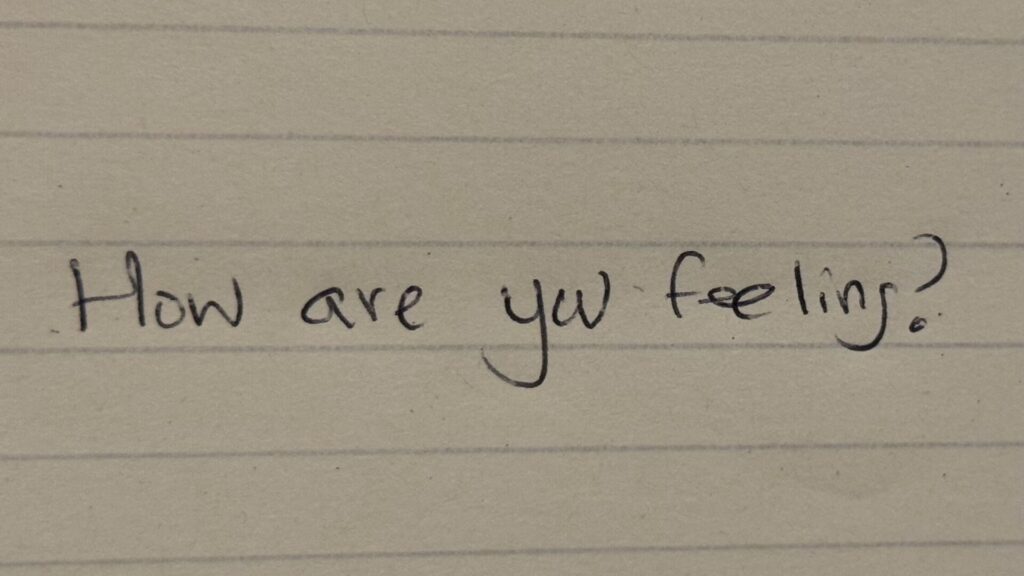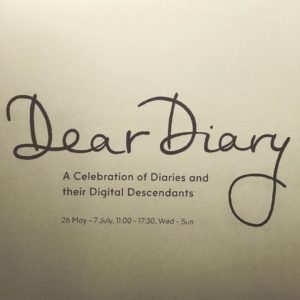
Occasionally, I look through old archives and entries on websites I have had since the dawn of the ‘net. On this day in 2005, I wrote a review of Eternal Sunshine of the Spotless Mind. When I look closely at the URL of the original entry, I see that I spelt the film title as “spotess ming.” I do not think my typing has improved, but hopefully, my error detection has got better. The review suggested the film was “cool” but was otherwise non-committal.
Recently, I’ve noticed that much of my writing isn’t overly opinionated, often retelling activities but not how I felt about those actions. I write some things on a blog, and I write some things in a photo journal. They often read like a chronological record of the day and nothing more. Sometimes I am better than at other times. I can describe objects that have sentimental value better than I describe emotions connected to the chronology written in other entries. Writing in public, though, makes me write. I probably wouldn’t do it if I didn’t do it here. I want the incentive.
Words from both the blog and the photo journal are copied into a digital diary, so I am independent of hosting providers or external services to maintain a copy of my words. Yet, both the places I write for are public (regardless of the number of visitors), and I wonder if that makes me reticent to say what I feel about things.
I’ve been thinking about this for quite a while. I have a backlog of words written over the years, and it’s fascinating to see what I was doing on this day in history. Still, I can’t fathom what I was thinking or how I was feeling. Would somebody reading all this when I am gone, if anybody ever does, know how I felt about anything? I want to get better but don’t know how to start. For sure, it won’t be on this site.
This week, I found a blog post and accompanying photograph from the tube, written in 2004, taken after I’d been running a training course for some customers. After seeing it come up on my personal ‘on this day’, I was able to hunt through my diaries to discover which customer I had been training and what the dinner was (the invite included who and a rough where: “hello curry place” in Tooting). But I have no idea how I felt about either of those things.
Coincidentally, I was pointed to a September 2021 article in The Atlantic titled “What Bobby McIlvaine Left Behind.” It’s a compelling piece of writing about the death of a son/brother/fiancé who was killed in the terrible events of 9/11. One of the things left behind was a collection of diaries and notepads. The piece reminds us that the written word is a way to connect with people when they are not around, perhaps even to know them better.
We all have photographs and, increasingly, video. Still, unless somebody’s secretly making a documentary about me, the picture my photos will paint is external: where was I, who was I with, what was I wearing? It’s a visual calendar.
I love my visual history of pictures and videos. I was one of the first people I knew who digitised almost all my old photographs and made them accessible (at least to me). Not only that, I tried to properly tag them with people and places. I can be at dinner with friends where we are talking about a past event we were at or somebody we’ve lost touch with, and if I was there, or if I knew them, I can bring up a picture. Each image documents a little bit of me, but to me, they stir a head full of other memories, thoughts, and emotions. Those ‘others’ aren’t visible to the people I am showing the picture to. Only a diary might be able to tell that.
I need to find a way to feel confident writing down my feelings. As I type, I am a bit tired. I am looking forward to my dinner (prepared by the adorable PY), and I am frustrated about a couple of things that happened at work. I am sad but also relieved that I could not make it to my Tai Chi class. I’m excited to visit my parents tomorrow. But is that enough?
Any tips on better ways to document life’s invisible parts are appreciated.
 In the archive you’ll find that I posted an entry from 2002 entitled “
In the archive you’ll find that I posted an entry from 2002 entitled “